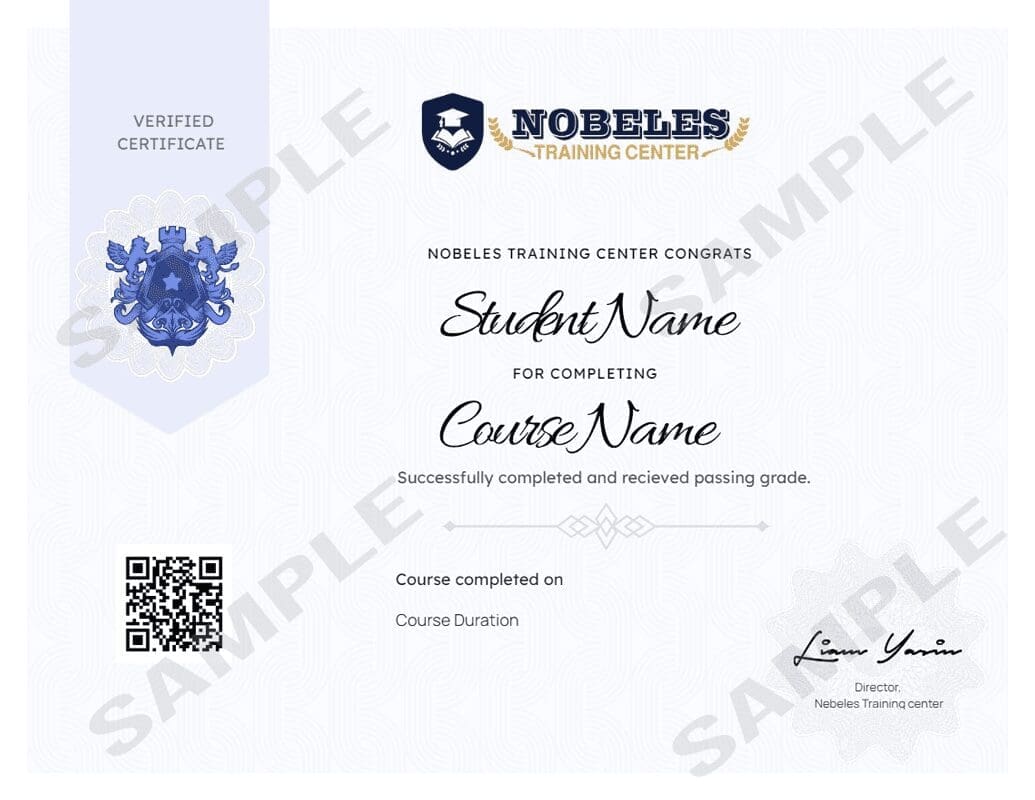Description
Curriculum
Instructor
Social intelligence can seem like a complicated term and can make many of us feel nervous. But it is something we deal with every day and it can help us navigate better experiences in our social environment. Whether we’re at home or at work, knowing how to be more aware of ourselves and our surroundings can help us make the best out of any social situation!
Please enter your name and email to view the content:
Curriculum
- 11 Sections
- 11 Lessons
- 10 Hours
Expand all sectionsCollapse all sections
- Increase Your Self AwarenessIncreasing self-awareness enhances social intelligence by recognizing your emotions, strengths, and weaknesses. Reflecting on behavior and seeking feedback fosters better interpersonal relationships and improves communication and empathy with others.1
- The Keys to EmpathyThe keys to empathy involve active listening, understanding others' perspectives, and validating their feelings. Cultivating genuine connections and responding compassionately fosters trust and enhances social interactions in various contexts.1
- Active ListeningActive listening requires fully focusing on the speaker, acknowledging their message, and responding thoughtfully. This practice fosters understanding, builds rapport, and enhances communication, creating a supportive environment for meaningful interactions.1
- Insight on BehaviorInsight on behavior involves observing and interpreting actions and reactions in social contexts. Understanding motivations, triggers, and patterns helps improve interpersonal dynamics and fosters effective communication and collaboration with others.1
- CommunicationEffective communication combines clarity, active listening, and nonverbal cues. Tailoring your message to the audience's needs fosters understanding, strengthens relationships, and enhances collaboration, leading to more successful interactions in various settings.1
- Social Cues (I)Social cues (I) refer to nonverbal signals, such as facial expressions, body language, and tone of voice, that convey emotions and intentions. Recognizing these cues enhances understanding and improves interpersonal communication.1
- Social Cues (II)Social cues (II) also include context and situational awareness, helping interpret interactions accurately. Being attuned to these signals fosters empathy, informs responses, and strengthens connections in social and professional environments.1
- Conversation SkillsConversation skills involve initiating dialogue, maintaining engagement, and adapting to the flow of discussion. Practicing active listening, asking open-ended questions, and offering relevant contributions enhances rapport and fosters meaningful exchanges.1
- Body LanguageBody language encompasses nonverbal communication, including gestures, posture, and facial expressions. Understanding and utilizing effective body language enhances interactions, conveys confidence, and reinforces messages, creating a more impactful presence in conversations.1
- Building RapportBuilding rapport involves creating a sense of connection and trust with others. This can be achieved through active listening, shared experiences, empathy, and genuine interest, fostering positive relationships in personal and professional settings.1
- Post-TestPost-Test1
Nobles Center

5 Students146 Courses
Review
$225.00
430 students
11 lessons
Language: English
0 quiz
Assessments: Yes
Skill level All levels
Nobles Certificate
At the end of the course, you can download a copy of your certified certificate.
Nobeles Academy
Mobile Application
Download the Nobeles center mobile app from the app app store, click the button below
Courses you might be interested in
Taking control over the emotions that shape our lives can have powerful effects. Emotional intelligence (EI) is the ability to recognize and manage our emotions, behaviors, and impulses, as well...
-
11 Lessons
$295.00
We are continually placed in social learning situations. Whether we are continuing education, learning new skills at work, or participating in a club; learning often takes place in social settings....
-
11 Lessons
$195.00
Social media is an ever-evolving field. The power of social media is its ability to allow for interaction and the sharing of information with anyone. Social media platforms host online...
-
11 Lessons
$325.00





